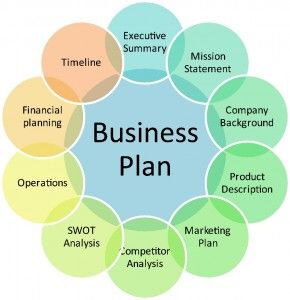Keep up the excellent job and delivering in the crowd!
Here is my weblog: {link://www.bluegreenforums.com/index.phpp=/discussion/348/best-reasons-to-choose-a-handheld-back-massager?new=1}visit website{/Link}

A few key steps to writing a successful plan.
The same can be said for business. Every business, whether a startup or a full-fledged, profitable organization, needs a business plan. To know where you are going, you have to know where you came from and what came before you.
Most business plans are written for an audience. The most common audience is investors and lenders. Another audience might be your employees.
Your business plan can never, nor should ever, answer every question your reader might have. Such a plan would be too lengthy, and no one would want to read it.
When used as a tool to gain investor and lender interest, your business plan is essentially a sales or marketing document. As such, it should get the investor excited, much like a brochure for a new automobile gets the right consumer to want to learn more and/or purchase it.
A measure of good or bad in a business plan is realism. You don’t get points for ideas that can’t be implemented.
Every business plan ought to include tasks, deadlines, dates, forecasts, budgets, and metrics. It’s measurable.
Working for yourself shouldn’t mean being isolated. In fact, cultivating business networks when you’re self-employed is especially important.

The best way to show bankers, venture capitalists, and angel investors that you are worthy of financial support is to show them a great business plan. Make sure that your plan is clear, focused and realistic. Then show them that you have the tools, talent and team to make it happen. Your business plan is like your calling card, it will get you in the door where you'll have to convince investors and loan officers that you can put your plan into action.
Once you have raised the money to start or expand your business, your plan will serve as a road map for your business. It is not a static document that you write once and put away. You will reference it often, making sure you stay focused and on track, and meet milestones. It will change and develop as your business evolves.

Do I need a business plan?
Not everyone who starts and runs a business begins with a business plan, but it certainly helps to have one. If you are seeking funding from a venture capitalist, you will certainly need a comprehensive business plan that is well thought out and contains sound business reasoning.
If you are approaching a banker for a loan for a start-up business, your loan officer may suggest a Small Business Administration (SBA) loan, which will require a business plan. If you have an existing business and are approaching a bank for capital to expand the business, they often will not require a business plan, but they may look more favorably on your application if you have one.
Reasons for writing a business plan include:
• Support a loan application
• Raise equity funding
• Define and fix objectives and programs to achieve those objectives
• Create regular business review and course correction
• Define a new business
• Define agreements between partners
• Set a value on a business for sale or legal purposes
• Evaluate a new product line, promotion, or expansion

What's in a business plan?
A business plan should prove that your business will generate enough revenue to cover your expenses and make a satisfactory return for bankers or investors.
1. Executive Summary--features the highlights of your plan and sells your idea in two pages or less.
2. Company Summary--a factual description of your company, ownership, and history.
3. Products (or Services or both)--describes your products and/or services and how they stand out from competitive products and services.
4. Market Analysis-provides a summary of your typical customers, competitive landscape, market size, and expected market growth.
5. Strategy and Implementation-describes how you will sell your product, how you will put your plan into action, and establishes milestones.
6. Management Summary-provides background on the management team, their experiences, and key accomplishments.
7. Financial Plan-contains key financials including sales, cash flow, and profits.

What makes a successful business plan?
• A well thought out idea
• Clear and concise writing
• A clear and logical structure
• Illustrates management's ability to make the business a success
• Shows profitability
How do you write a business plan?
Sitting down looking at a blank computer screen as you prepare to start your business plan can be daunting. Write from your heart but based on logic. Or, you may want to look at some alternatives that will make the process a bit easier.
Hire a Professional
A professional consultant will create the business plan for you, but you still have to be prepared to think through your business and understand the underlying concepts in your business idea. You will have to work closely with the consultant to ensure that he or she develops a good plan that accurately represents your business or business idea. You can find a list of business planning consultants at www.planconsultants.com.
Buy a Book
There are many good books on the market that will help you to understand what needs to go into a good business plan. You can read Timothy Berry's "Hurdle: the Book on Business Planning".
Use Business Planning Software
A good business planning software package will provide you with an outline for a well-developed, objective-based and professional business plan. Software packages will remove the problem of starting from scratch by structuring your plan for you. The software should ask you the right questions that will pull out the most important underlying concepts within your business idea. Find out more about the leading software package on the market, Business Plan Pro.
 |
Chuck Groot’s CPA, MPA, MBA credentials as an author, teacher, business coach and entrepreneur are noteworthy. His clients credit their success to his uncanny ability to get right to the root of any challenge that they put in front of him. He credits his success to his clients and their willingness to being open to new ideas and desire in pursuit of excellence. As an entrepreneur, his enthusiasm and innovative approach have garnered him both professional success and the recognition of his peers. But his greatest delight is being able to share these skills with others and enabling them to be successful on their own.
I would really like to hear what you think about this article. Drop me a line and let me know how you feel about it? |
Keep up the excellent job and delivering in the crowd!
Here is my weblog: {link://www.bluegreenforums.com/index.phpp=/discussion/348/best-reasons-to-choose-a-handheld-back-massager?new=1}visit website{/Link}
thank so a lot for your website it aids a lot.
Also visit my page :: {link://www.iptvfans.cn/wiki/index.phptitle=Uncover_here_details_about_the_best_foot_massager_-_this_info_will_help_you_to_discover_the_suitable_model!8151280}Conair Foot Spa{/Link}
You have got superb info on this site.
My homepage {link://bd-server.com/user/StarMackinolty/}for more information{/Link}